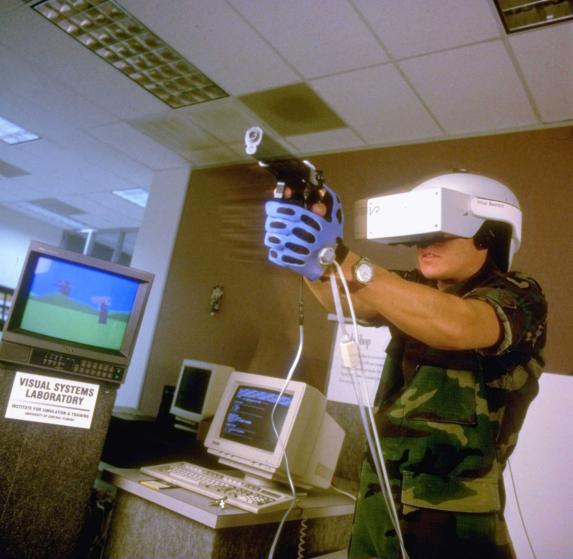Apple’s CEO doesn’t think VR is a “niche”
According to a few new job postings from fruit-themed toymaker Apple and advertising industry giant Google, both corporations seem to be planning individual efforts to join the others big-name players of the virtual reality market space very soon. Earlier this week, Wareable.com reported that Apple has just hired Doug Bowman, a leading virtual reality and augmented reality (AR) researcher who is moving from his post as director of Center for Human Computer Interaction at Virginia Tech. Of Bowman’s long list of accomplishments in the field, some notable ones include co-authoring 3D User Interfaces: Theory and Practice and receiving a $100,000 grant from Microsoft in November 2015 for a mixed-reality data study on HoloLens.
During Apple’s latest quarterly earnings call on Tuesday, CEO Tim Cook also made brief remarks about the possibilities that virtual reality devices might afford the company. “In terms of virtual reality, I don’t think it’s a niche,” said Cook. “I think it can be…it’s really cool, and has some interesting applications.”
Apple CEO Tim Cook on The Late Show with Stephen Colbert (September 15, 2015)
Back in October 2015, Apple teamed up with longtime music partner group U2 and created its first 360-degree virtual reality video made available on the Vrse VR app. The music video is part of a larger Apple Music partnership with U2 called “The Experience Bus,” which is a road bus that travels with U2 and allows the band’s fans to wait in line outside the bus for their chance to strap on an Oculus VR headset to experience an interactive version of their “Song for Someone” music video with other fans.
Google ultimately wants to do VR alone
Right up the road at Google’s headquarters in Mountain View, California, a job opening was posted last Friday for a full-time Consumer Hardware Engineering Technical Lead Manager and another one for a Consumer Hardware PCB Layout Engineer. We should note that both of these positions at one point ended with "Virtual Reality," but Google has since replaced the phrase with "Consumer Hardware."
On Sunday, former Twitter top executive and Vine boss Jason Toff left his position at the social networking giant to join Google’s efforts in the virtual reality space. As a successful project lead on the short-form video sharing service acquired by Twitter, he now writes that he looks forward to the exciting opportunities that the green giant will provide.
In February 2014, Google announced Project Tango, a technology platform that uses computer vision to enable smartphones and tablets to use their integrated sensors for advanced motion and space tracking – all without using GPS or external resources. The goal is to allow developers to create indoor navigation maps, augmented reality spaces, and windows into virtual 3D worlds. At CES 2016 earlier this month, the company partnered with Lenovo to bring the first consumer Project Tango smartphone to market by this summer for under $500.

Google's Project Tango
Back at the Google’s I/O developer conference in June 2014, the company also launched its often-critiqued Cardboard platform, a fold-out cardboard smartphone mount that allows for a very primitive do-it-yourself VR experience in a very affordable format. The project has since been used for a variety of both playful and professional purposes, even including in the assistance of a successful open-lung surgery.
Then, of course, there is YouTube’s 360-degree video platform that launched in March 2015. The Internet video content giant now allows users to upload and play 360-degree spherical videos recorded on one of few available 360-degree cameras. These include the Kodak PixPro SP360 4K camera, Giroptic 360cam, IC Real Tech Allie, and Ricoh Theta.
By now, it has been made abundantly clear that Google is interested in the VR market space and will do anything to gain a few extra consumer dollars so long as price points are affordable and enthusiasm is high enough. After the drop off last year of its augmented reality Glass project and increasing evidence that other smart glasses have become more useful to enterprise customers, we stand to reason, along with others, that Google wants to make its own efforts in virtual reality market – and away from third-party manufacturers.
As Google's Carboard team leader Clay Bavor recently told Time.com, "VR is too important and too powerful a medium to be accessible to only a few."
So long as the company doesn’t gobble up a whole slew of small start-ups trying to make names for themselves in the process, we wish the company all the best and look forward to more market competition, and hopefully, lower prices for all VR brands involved as a result.
Just for kicks (via Time.com): 1994, Soldier training using a virtual reality-simulated 3-D shootout at an Army facility.




